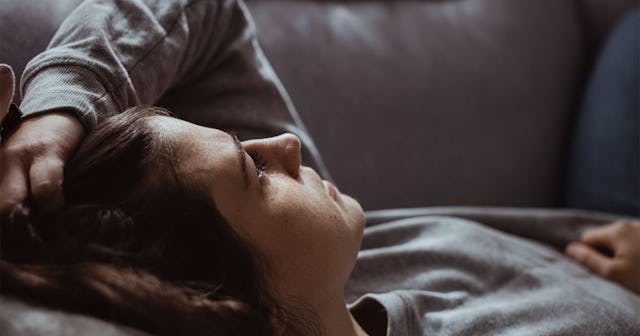I Didn’t Think I’d Survive Mother’s Day After Losing My Baby

A few weeks after my sister gave birth to her third son, and a few weeks before Mother’s Day, I lost my first and only son in the second trimester of a pregnancy that had seemed perfect.
“We don’t have to do anything for Mother’s Day,” my mom said, knowing it would likely be difficult for me.
This loss of my son was my third pregnancy loss. I had been through the proverbial wringer.
“No, that’s okay. I can do it,” I said.
This was a profound example of fooling oneself.
***
My husband and I hosted the Mother’s Day gathering that year. This choice is evidence of the thickness of my grief fog. My rationale was that I didn’t want to leave my house. I wanted to be near my bedroom in case I needed to lie down and cry. In retrospect, if I was that at risk of needing to lie down and cry, I should have skipped the gathering entirely. But I didn’t want to need to skip the gathering. I didn’t want to accept how devastating my son’s death was. I wanted to do what all the clichés were telling me to do—be positive, put one foot in front of the other, move on.
After dinner, my sister asked if I wanted to hold her baby, and I said, “Okay.” I had held him once before, in the hospital, hours after he was born. It was hours later that same day that my obstetrician said to me, “Your amniotic fluid is very low” and sent me home for two weeks of bedrest. Unbeknownst to me, my baby died during those two weeks. When I went back, the doctor moved his wand over my belly and there was a deafening silence, followed by a scream so primal that I didn’t realize it was my own.
The moment I felt the weight of my nephew in my arms, I started crying, and then my sister started crying. I would never know the weight of my own son. I would never hold him. I’d been given the choice to deliver him or have a dilation and evacuation to remove him from my body. I chose the latter because I thought I’d never be able to recover from the former. Six years later, I still regret this sometimes. I still wish I could have seen him.
***
In the dark years of my losses, Mother’s Day felt like a landmine, something that could obliterate me if I wasn’t careful. I wish I had sat out the gatherings, told people it was too painful instead of pretending it wasn’t. In our society, we go out of our way to hide our grief to make others comfortable. This leaves us alone with the massive weight of our agony.
I wish I had stayed off social media, away from the photos of all the moms cradling their children, away from the memes saying, “I don’t know who I would be if I wasn’t a mother” and “Motherhood is the greatest joy.” Motherhood can also be the greatest pain, I wanted to say in response. There are some of us mothers with babies you cannot see, I wanted to say in response. There are some of us mothers with babies we will never see.
After a fourth pregnancy loss, I gave birth to a healthy daughter in 2017. You might think my Mother’s Days would be joyous now, but they are still tinged with sadness. They remind me that I am the mother to four souls who are not here on Earth with me. I am grateful for the little soul who is here, grateful that I can hold her and feel the weight of her hundreds of times a day if I so wish, but there is still sadness. Nobody tells you this. When you lose a pregnancy, they say, “Don’t worry, you’ll have another” or “It’ll happen when the time is right.” But they don’t tell you that even if you do have another, even if it does happen when the time is “right,” that doesn’t magically erase the ache. The losses stay with you, they change you.
My losses were a boot camp in learning to let go. With each pregnancy, a space inside me opened up, a love grew. With each loss, I let go of so many dreams, but that love remained. It transformed me into a more appreciative, compassionate person. It made me into a better mother—to myself, and to the daughter I would eventually hold. On Mother’s Day, I take a moment to thank the babies who came before my daughter, for showing me how to love in the face of fear and uncertainty. That love is their legacy.